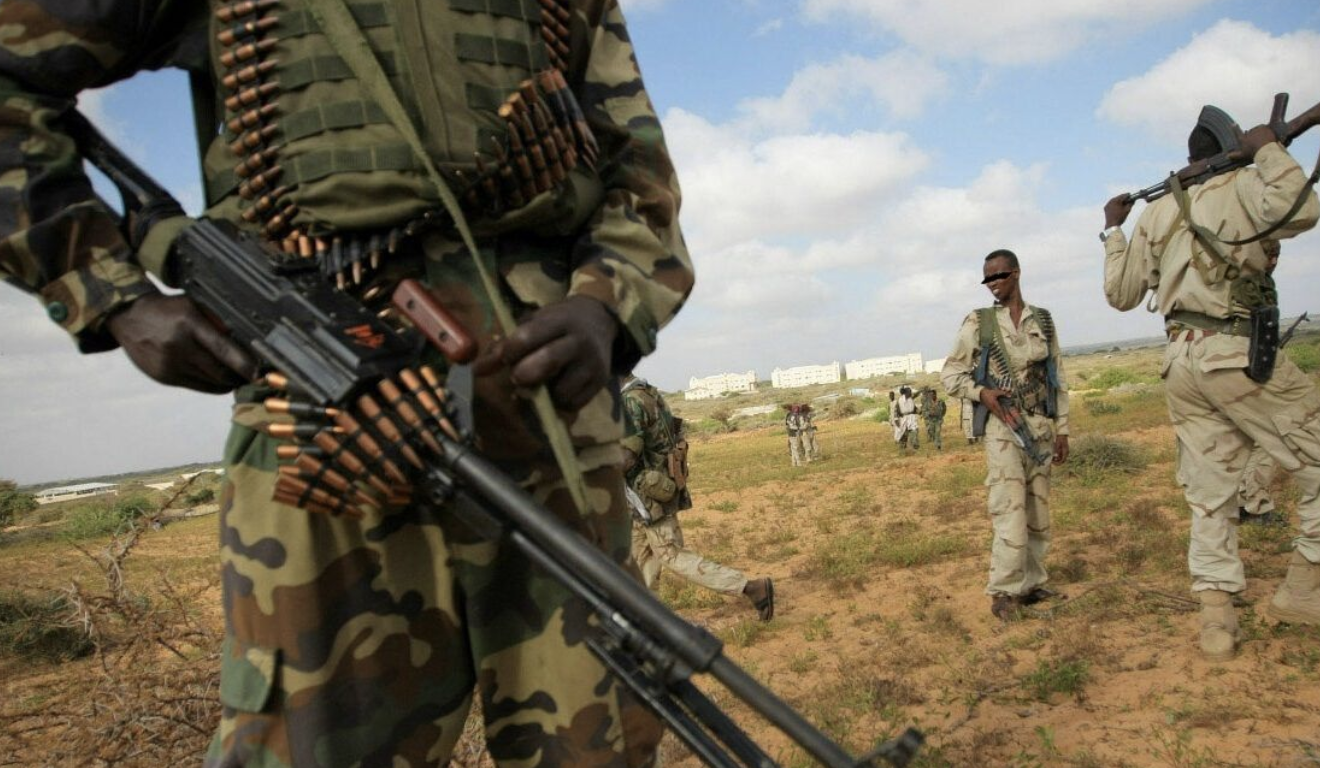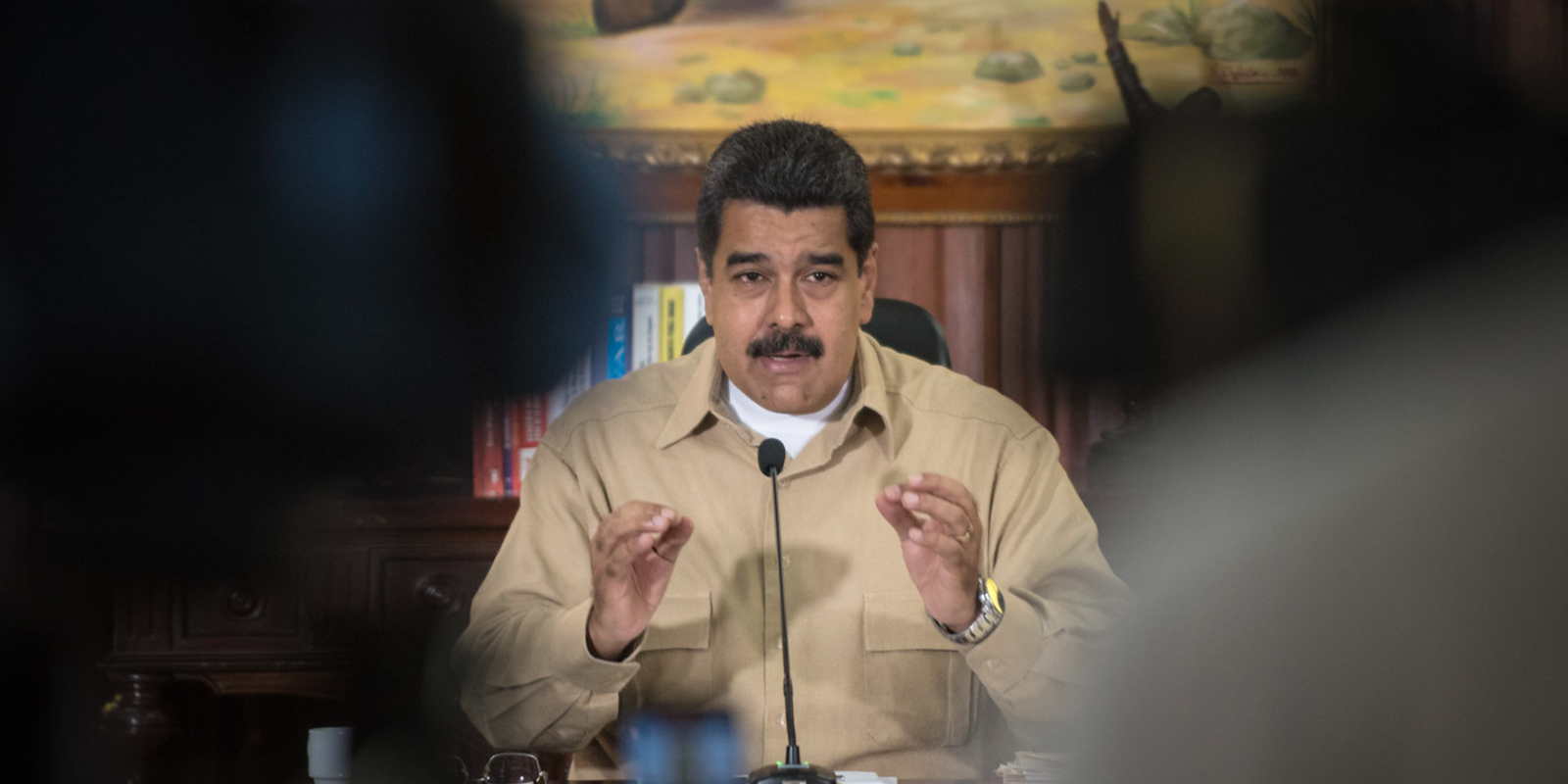News
Outside World Can Help Turn the Sahel Away From its Disastrous Path
Don Quixote rode against windmills believing they were giants. The war in the Sahel should not be turned into a war between Western or Russian windmills, but rather a fight for representative government and governance worthy of the term.

Former Director, The Brenthurst Foundation

Former Research Director, The Brenthurst Foundation

The situation across the Sahel is deteriorating. Thirty years ago the region promised the benefits of democracy. Now it is the source of migrants, violent extremism and coups. Fresh Russian involvement has profited from the years of failure of Western methods to try to arrest the collapse of governance, rise in poverty and spread of violence.
But never say forever. The outcome today of these intersecting trends depends to a great extent on what the outside world, led by Africa, does and prevents. This includes stopping Russian meddling, which in its current, mostly martial form, can only make things worse.
For now, the fragility of the region is epitomised by what happened in Mali, once the poster child for democracy with its transition away from authoritarian rule in the 1990s. An unequal geographical and ethnic distribution of these benefits along with the instability generated by the removal (led by the West) from office of Muammar Gaddafi in neighbouring Libya in 2011 contributed to the return of the coup to Mali the following year and the start of a long-brewing violent rebellion in the northern part of the country.
Although civilian rule was restored and a peace agreement was signed in 2015, the situation continued to worsen, culminating in two further coups in 2020 and 2021.
Other factors have helped, not least the regional strain in the relationship with the former colonial power, France. Some have portrayed the rash of coups as being simply an anti-French revolution rather than promising a new social or economic order.
This aspect is compounded by the inattentiveness of the West more generally and the failure of its engagement with the region to deliver better governance and the security and economic prospects it offers.
To these factors can be added the changing focus of Russia towards the region on the back of its Ukrainian invasion, and rapidly expanding demographics.
The Sahel will, by 2050, hold a population of 330 million across its core five countries — Niger, Burkina Faso, Mauritania, Mali and Chad. More than double today’s figure, some of this surge of young people will inevitably try to move over the Mediterranean to seek better futures if the region continues to perform poorly.
It’s already a very poor place, with an average per capita income of $850 — about half of the sub-Saharan African average — and quickly falling further behind the rest of the world. This explains why its people want to move to where wealth is rising and, related to that, where they are safer.
Not only will this drive mass migration to Europe, but it risks being weaponised if a malign actor becomes involved in turning the trickle into a human stampede.
Africa Corps
The Russian private military contractor Wagner arrived in Mali in 2021, shortly after the most recent coup. Now formally labelled, without parody apparently, as the Africa Corps, it has an established presence in the Central African Republic (CAR), Libya, Mali and Sudan and has gained a foothold in Burkina Faso and Niger.
There were immediate geopolitical implications.
The long-running UN Minusma peacekeeping mission, which began in 2013, left in 2023 after being asked to do so by the military government. Niger’s junta kicked out the 1,500-strong French garrison at the end of last year (which had been forced to leave Mali and move to Niger in 2022) and announced the cancellation of a 2012 agreement with Washington which had built a desert drone base for $100-million in northern Niger and had 1,000 troops in the country.
Puzzlingly, it took Washington three months to recognise the events in the capital, Niamey, in July 2023 — when the civilian president, Mohamed Bazoum, was evicted from office and replaced with the head of the presidential guard, General Abdourahamane Tchiani — as a coup.
For Russia, Africa offers new markets and diplomatic support to reduce its growing isolation following its 2022 invasion of Ukraine. The strategy it pursues seeks to deliver a defeat to the democratic world and a win for Russia at the lowest cost possible.
But it’s not entirely opportunistic.
Moscow has proven itself more nimble in Africa than its Soviet prototype, with the modern version capable of thinking on its feet, less dogmatic, more flexible and focused on digital signalling. Driven by its experience in Ukraine, Russia takes Africa more seriously, in the mind of local African intelligence experts, than in the past.
There is a further strategic dimension in Africa’s role as a theatre of indirect warfare to distract the West, draw its resources away and spend energy on bolstering its allies.
At the end of July, scores of Malian soldiers, along with Russian mercenaries were killed in clashes with separatist rebels and al-Qaeda-linked militants. After the Russians confirmed these losses, a spokesman for Ukrainian military intelligence, said that insurgents had received “the necessary information they needed” to conduct the attacks.
In response, Mali severed diplomatic ties with Kyiv. The junta in Niger soon followed suit. Burkina Faso, where a military government has been in place since January 2022, is expected to take similar action soon, not least since the three states are bound by a confederation treaty, the Alliance of Sahel States, signed in July as well as an earlier mutual defence pact.
In January, all three left the Economic Community of West African States (Ecowas), with Tchiani describing the regional bloc as “a threat to our states”.
Destabilisation strategy
It’s unclear if this will stop there. President Bola Tinubu’s ongoing clampdown on Russian-flag-waving militants in Nigeria raises concerns about the seemingly unstoppable spread of Moscow’s influence. The government this past week arrested more than 90 demonstrators as protests over economic hardship erupted. Nigeria would be a big target of any destabilisation strategy, given its inbuilt, overlapping ethnic and governance fragility, but Morocco might also be on that list, troubles which Algeria is unlikely to discourage.
The pattern of jihadist and rebel activities may have produced what the French once described in Indochina as la guerre sans fronts — “a war without fronts”. Some might like to turn it into a war without borders, engulfing West Africa.
Regardless, the eventual outcome of this wave of putschists and Russia’s role is predictable. It will probably change Russia more than Russia changes the region. How long this eventuality takes depends on how the region and its supporters react, and just how clumsy the Russians prove.
In the interim, expect a coup nul — a tied game — between the Russian and Western camps.
Ultimately, Moscow will find itself in the same mess that the French (and everyone else) routinely does. It is plunging into a part of the world of which it knows nothing, in which its main advantage, if such you can call it, notes the Cambridge scholar Christopher Clapham, “is that they can be as brutal as they like”.
While this might have an immediate impact, it will build up lasting hatred against Moscow that can only worsen with time. This is already starting to happen with the disaster that befell Wagner in Mali, even though the Ukrainians would have been wiser not to have boasted about their role, and is likely to extend to the other Sahel states in which Russia is involved. The obstacles to success are just as big for Russia as they were for the West, unless success is defined differently.

This adventure can simultaneously only drain Russian resources and Moscow’s image. And there are few natural resources or big infrastructure contracts to compensate for this investment.
As one (Western) diplomat who spends a lot of time thinking about the impact of (African) regional instability on (European) migration, observes, “They are happy with showing our incompetence (but they will soon show their own), happy with a non-democratic, non-human-rights-respecting puppet government (but the population might not be as happy) but in the end they need to ensure ‘peace’ as they did in CAR, and it is way more difficult in the Sahel.”
For those seeking to undo Russian-led destabilisation, given that the most effective enemies of the Russians are likely to be Islamists, any assistance or intelligence that Western states (including Ukraine) give them is best kept under cover. There may be some more useful long-term outcomes, not least through rebuilding connections and mending relationships in the region that have been badly strained by Western over-engagement.
Internal opposition
These new forms of assistance to regional bulwarks against this spread will have to involve far more than kinetic action or even military equipment and training.
Given that all these regimes are by definition undemocratic and thus highly factional, unstable and vulnerable, these cracks can be widened by limiting their income streams, supporting internal opposition forces through financing along with media and civil society, and helping regional states to limit their influence, not least through intelligence sharing, capacity-building and covert operations. For instance, transit countries will have an interest in blocking the traffic of migrants, allowing for effective use of shared intelligence from outside coupled with local leadership and muscle.
Russia won’t go easily, in part because until now the Sahel has proven reasonably high reward and low cost and because it has fewer options than before its invasion of Ukraine on 24 February 2022. Success in destabilising Russian-backed groups can only put more pressure on Russia to redirect resources which it does not have at the moment.
In sum, those wanting to stop the spread of Russian and other negative influences in the Sahel should help to equip, train and arm with intelligence those countries on the frontline of this coming chaos.
As Bernard Fall, the great French strategist noted about the war in Vietnam, “Military tactics and hardware are all well and good, but they are quite useless if one has lost the confidence of the population among whom one is fighting.”
There is a need to raise the price for the Russians in playing their game of regional destabilisation, to make it more costly to its supporters and make its client regimes more unpopular and illegitimate in the eyes of their populations.
Don Quixote rode against windmills believing they were giants. The war in the Sahel should not be turned into a war between Western or Russian windmills, but rather a fight for representative government and governance worthy of the term. Without giving populations a stake in success, leadership will continue to swing wildly between extremes, inside and out.
Herein lies a key lesson for outsiders who seek to support constitutionalism: don’t get too involved.
Overt involvement risks providing Sahelian putschists with a visible reason for their failure, an enemy on whom to externalise their failings. And outsiders seeking to do good and support constitutionality should be careful not to alienate the populations, who will inevitably turn against the failure of authoritarians to deliver their promises. This will demand patience and strategy more than a simple change of tactics.
This article was originally published on the Daily Maverick

